Stories From the People
524
Growing Hope from Jangkat Land
-detail.jpg)
Portal BIOCF
Thursday, 07 August 2025 Post 12:08 AM
On the green slopes of Jangkat Village, Merangin, morning dawns with dew clinging to young coffee and cinnamon leaves. The wind carries the scent of wet earth and the hope that slowly begins to sprout, alongside the thousands of seedlings that now adorn the farmers' fields.
In the past, farmers in this village used to trek deep into the forest to find seedlings. If they were unlucky, they had to buy them at high prices—an added burden amidst the challenges of living on land that was often insufficiently fertile due to limited fertilizer and maintenance. However, everything began to change when the Merangin KPHP arrived with a rehabilitation program funded by BioCF ISFL.
In 2024, 25,000 seedlings were distributed to Jangkat Village. These seedlings included coffee, cinnamon, avocado, and several other commodities. This assistance wasn't just a figure on paper; it came in the form of young plants that now reforest the community's land.
"We used to have to get seeds from the forest, and even then, they wouldn't necessarily grow well. Now we have high-quality seeds, free of charge, and we also provide fertilizer," said one farmer as he cleared weeds around his two-month-old coffee plants.
This program is aimed at farmers with a maximum of two hectares of land, with the total seed distribution area in a single village not exceeding 50 hectares. This approach not only supports smallholder farmers but also maintains a balance so that rehabilitation is sustainable and controlled.
In addition to seeds and fertilizer, each participating farmer also receives a planting incentive worth IDR 2,000,000. This money provides additional encouragement and helps meet basic needs during the initial planting period, which is usually not yet productive.
However, most importantly, the shift in mindset that is slowly starting to develop with these young plants. While previously clearing forests was considered the only way to expand land and increase yields, now farmers are realizing that preserving the forest while increasing productivity on existing land is a wiser approach.
"If our land used to be under-yielding, we would clear the forest. But now, just take care of what we have. Plant good seeds, apply fertilizer, and God willing, the results will be better," said another farmer, with a confident smile rarely seen recently.
Jangkat Village is now a reflection of the hope that has emerged from a program that directly addresses the root causes of problems: access, the economy, and the environment. Slowly, this village is planting more than just trees—they are planting the future.
In the past, farmers in this village used to trek deep into the forest to find seedlings. If they were unlucky, they had to buy them at high prices—an added burden amidst the challenges of living on land that was often insufficiently fertile due to limited fertilizer and maintenance. However, everything began to change when the Merangin KPHP arrived with a rehabilitation program funded by BioCF ISFL.
In 2024, 25,000 seedlings were distributed to Jangkat Village. These seedlings included coffee, cinnamon, avocado, and several other commodities. This assistance wasn't just a figure on paper; it came in the form of young plants that now reforest the community's land.
"We used to have to get seeds from the forest, and even then, they wouldn't necessarily grow well. Now we have high-quality seeds, free of charge, and we also provide fertilizer," said one farmer as he cleared weeds around his two-month-old coffee plants.
This program is aimed at farmers with a maximum of two hectares of land, with the total seed distribution area in a single village not exceeding 50 hectares. This approach not only supports smallholder farmers but also maintains a balance so that rehabilitation is sustainable and controlled.
In addition to seeds and fertilizer, each participating farmer also receives a planting incentive worth IDR 2,000,000. This money provides additional encouragement and helps meet basic needs during the initial planting period, which is usually not yet productive.
However, most importantly, the shift in mindset that is slowly starting to develop with these young plants. While previously clearing forests was considered the only way to expand land and increase yields, now farmers are realizing that preserving the forest while increasing productivity on existing land is a wiser approach.
"If our land used to be under-yielding, we would clear the forest. But now, just take care of what we have. Plant good seeds, apply fertilizer, and God willing, the results will be better," said another farmer, with a confident smile rarely seen recently.
Jangkat Village is now a reflection of the hope that has emerged from a program that directly addresses the root causes of problems: access, the economy, and the environment. Slowly, this village is planting more than just trees—they are planting the future.
-thumb.jpg)
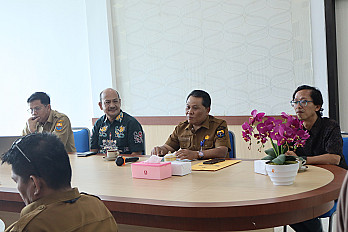
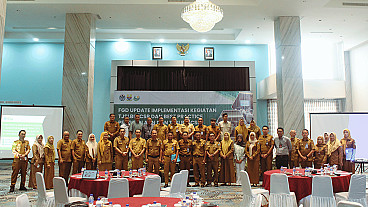
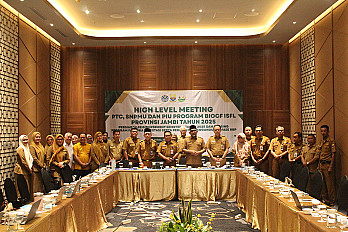
-thumb.jpg)
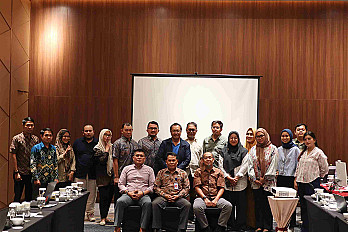
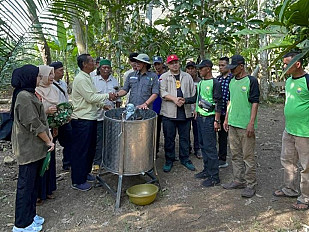
-thumb.jpg)